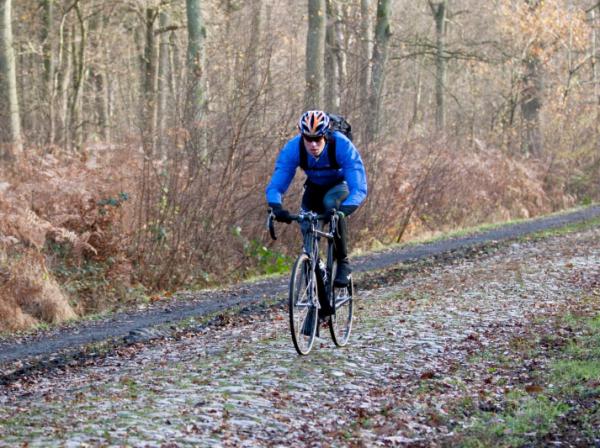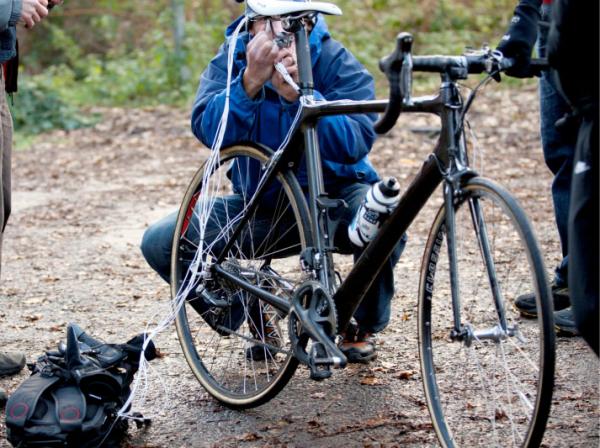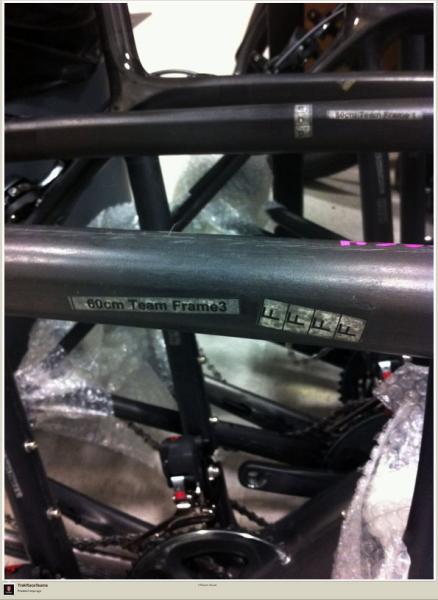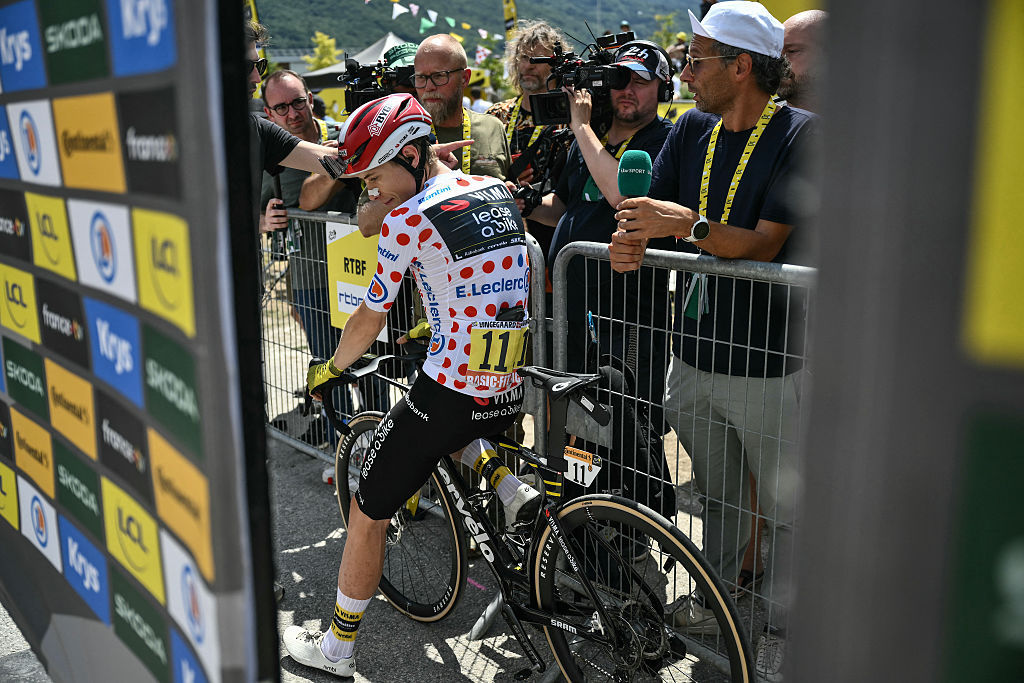Is Trek developing an answer to Specialized's S-Works Roubaix?
Leopard-Trek riders amongst the favourites for 'Hell of the North'
The latest race content, interviews, features, reviews and expert buying guides, direct to your inbox!
You are now subscribed
Your newsletter sign-up was successful



The focus of Trek's tech presentation at the recent Leopard Trek training camp in Mallorca, Spain naturally surrounded the new team bike – a striking Madone 6.9 SSL with a cleanly integrated Shimano Dura-Ace Di2 group – but a pair of fleeting images shown during a short video had our minds whirring.
Is Trek finally developing an answer to Specialized's enormously successful Roubaix range?
The images themselves were nothing groundbreaking – just what looked to be a standard Madone rigged with a fancy data acquisition system plus some action shots of new Leopard Trek team riders hurling themselves across the cobbles of Paris-Roubaix.
What is interesting, though, is what Trek plans on doing with this mass of data. The current Madone is already a highly refined machine and we find it unlikely that Trek engineers would undergo this sort of testing only now if they weren't merely collecting information for a brand-new carbon project.
Consider these pieces of evidence:
• The new Leopard Trek team is riddled with seasoned, talented riders who have made plainly clear that the spring classics are high on their list of goals. Fabian Cancellara has won Paris-Roubaix twice and the Ronde van Vlaanderen once and has publicly set sights on repeat victories; Stuart O'Grady has also won Paris-Roubaix; and young German Dominic Klemme has shown fantastic promise on the cobbles with a win firmly within his realm of future possibilities.
• Industry archrival Specialized includes 11 complete Tarmac bikes plus three framesets in its 2011 road lineup along with 10 complete Roubaix models and another three standalone chassis offerings so it's a substantial portion of the company's total road revenues.
• Though Trek cleverly offers the current Madone models in several geometry variations (H1, H2, and H3, all with different head tube lengths), the Wisconsin company still does not have a dedicated high-end 'endurance' bike in its quiver with the requisite longer wheelbase, increased tyre clearances, and softer ride characteristics endemic to the breed. Aside from whatever performance advantages may or may not exist to that sort of bike on the cobbles, it's at the very least a huge chunk of market share that Trek surely is not happy to concede to Specialized.
• Trek's current dedicated Paris-Roubaix machine is a standard Madone that has been slightly modified with greater tyre clearances front and rear and slightly longer front and rear centres for extra stability on the cobbles. Given the UCI's more stringent technical regulation reinforcement as of late, it's possible that such a bike wouldn't be deemed legal for competition as it's not available to the public.
• Trek has yet to win Paris-Roubaix. Industry archrival Specialized has won it for the last three years straight.
Trek officials would not confirm the existence of such a development project so all of this is pure speculation at this point. However, Trek also did not flat-out deny that it existed, either, so that at least leaves the door open for possibility.
The latest race content, interviews, features, reviews and expert buying guides, direct to your inbox!
Here's what Trek global road and triathlon brand manager Nick Howe had to say:
"Unfortunately it is too early to determine what might come from the athlete product development that we have been doing. Our main focus is to gather significant ride data to improve the performance and durability of our bicycles. The goal of our Advance Concepts Group is to use this data to develop any number of technical innovations. Often that is done before a platform is even identified for the use a specific technology.
"Trek consistently spends time with our top athletes on the most challenging race venues (like Roubaix). They can place demands on the products that no other testing can duplicate. We will continue this trend to help us refine and develop the best products in the world.
"Sincerely, we strive to achieve greatness in all the races that we participate in, and we work with the best teams because we feel like that pressure helps us raise our game."
Other likely features include Trek's 90mm-wide BB90 bottom bracket shell with drop-in bearings, some form of tapered head tube, fully internal cable routing and Di2 wire integration, and the company's slick DuoTrap computer sensor.
Aside from that, your guess is as good as ours. Normally we wouldn't realistically expect to see anything this speculative used in competition until next season but a recent tweet from Trek race department manager Scott Daubert suggests otherwise. Rest assured we'll be on the lookout for something special during this year's run-up to Paris-Roubaix.
